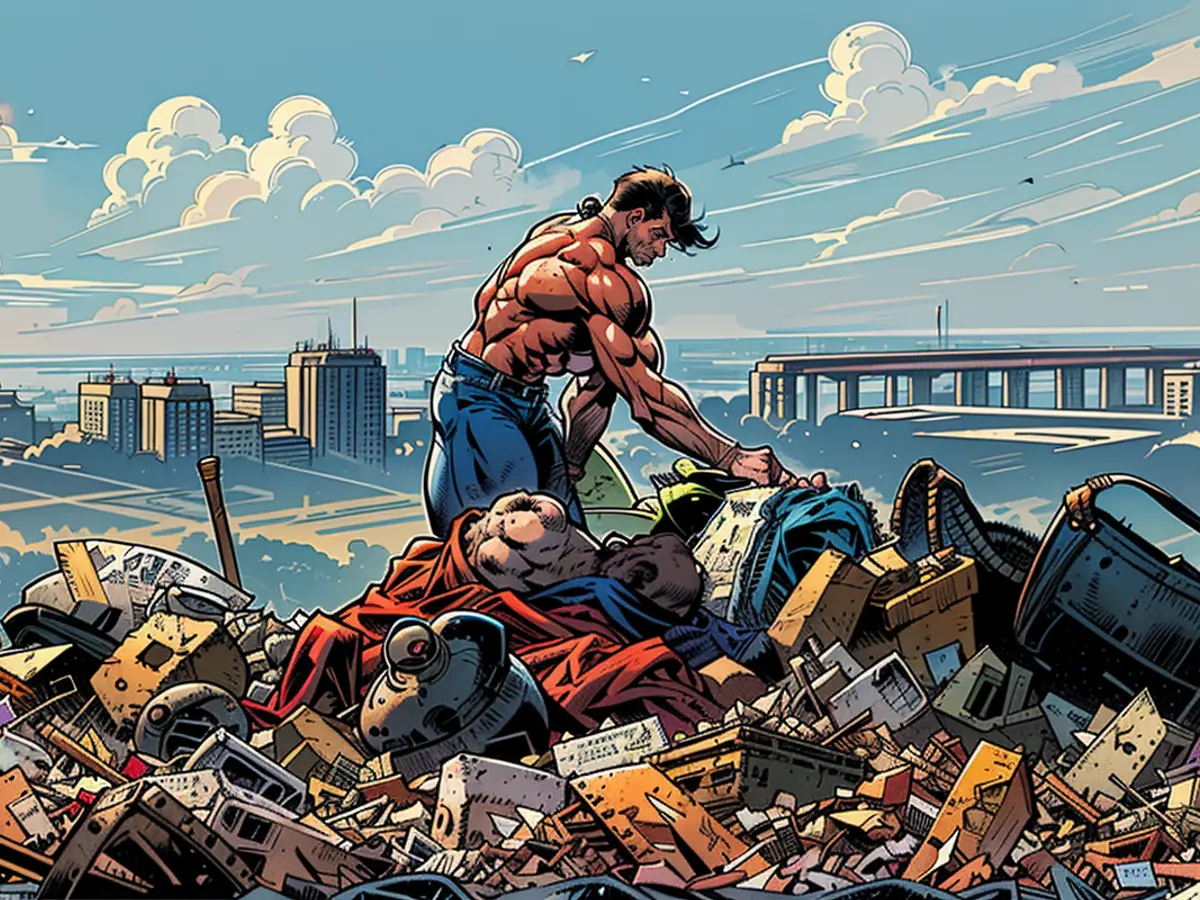"Neanderthals too, had their cave dwellings occupied"
ntv.de: Hey man, I recently chucked out two eggshells and a milk carton. It's tough to minimize waste in our daily life, but it's almost impossible to avoid completely. At what point does it become an issue?
Dude, Waste can lead to a variety of problems: it takes up space, may pollute the environment, stinks, and attracts pests or small animals. If we can't manage it well, waste is always an issue. Humans have always produced waste, it's a thing we do. Even ancient people like the Neanderthals filled their caves with trash, but then they moved on and the problem was solved.
In your book, you delve into the pre-modern era. How did people handle waste back then?
Waste became a problem for people when they settled down - simply because it took up space. It had to be removed from their living space somehow, so they either used it as fertilizer on farms or fixed broken items because they had no other choices.
Was waste recycling more of a necessary response to scarcity?
Basically, every pre-modern society up to around 1800 was a recycling and zero-waste society because they reused and repaired a lot. This wasn't because they cared about the planet or nature, but because they had to due to economic scarcity.
As cities grew rapidly in the 19th century due to industrialization and increasing population, what new challenges did this bring?
Recycling was even more intense during the industrial age than in the pre-modern era because many materials were used as starting points for industrial production. As more people produced more waste, it became necessary to deal with it. In the second half of the 19th century, waste collection vehicles were introduced, also for hygienic reasons.
The cramped city life brought diseases with it.
Exactly, it was typical that new ways of living together in increasingly larger cities in the 19th century also brought new diseases, especially cholera. This expanded our knowledge of what waste can potentially do. It was no longer just about removing a nuisance, but protecting public spaces from the spread of diseases. Consequently, the way waste was handled became more sophisticated.
Did people handle this well from today's perspective?
There are images of New York from the 1850s where the streets are covered in inches of feces. Ending this state is certainly something to be proud of. Through the introduction of waste bins and waste collection vehicles, cities did indeed become cleaner. However, progress with waste is rarely free from unwanted side effects. For example, when you introduce waste bins, you take away many people's, especially poor people's, ability to make a living with waste.
The amount of waste increased dramatically after World War II. They describe its "material complexity". What were the effects on waste disposal?
In the 1960s, waste amounts in West Germany alone doubled compared to pre-war levels. This was accompanied by the establishment of supermarkets, packaging, and new mass production methods: clothing, meat, drinks, furniture, electrical appliances. Products became more complex, more elements of the periodic table were used, materials were combined in new ways. This made it difficult to trace waste back to production and life cycles. Recycling became very complex, so the incentive to treat waste as waste, i.e., dispose of it in landfills or incinerate it, increased.
Germany was experiencing an economic miracle at the time, people could afford more and overcome the scarcity of war. Was this the beginning of excess?
People wanted to overcome the scarcity they experienced during World War II. Initially, this was a challenge, but soon they got used to it and it became the norm. Mass production caused the price of consumer goods to drop significantly. People could soon buy more, like cars and TVs. A household in West Germany spent half of its budget on food in the 1950s, today it's seven to eight percent. More consumption means more waste.
Today, we talk about voluntary restraint, awareness of sustainability is growing, many buy second-hand. Does this make a significant contribution to waste prevention?
You have to be careful when estimating individual behavior. It is certainly a significant social signal, but studies estimate the potential for waste prevention by individuals at around 20 percent. However, there is still a lot that can be done in terms of the responsibility of plastic producers for business recycling and the circular economy.
Recently, cheap products from China have flooded the European and US markets. Germany currently receives around 200,000 packages alone from Temu daily. How can you raise awareness among people who buy shoes for two euros and have them shipped halfway around the world?
This is a tough question. How many documentaries about Primark have there been? Yet, people continue to shop there. Providers like Temu or Shein take it to the next level and generate an incredible amount of waste. I would wish for more responsible consumer behavior, but unfortunately, I don't have the answer to really make people aware of the problem either.
It's often believed that the recycling issue is resolved once the trash is gathered. Seems like a myth, though. That's when the real challenge arises: figuring out what to do with it. Plenty of societies have stumbled at this stage, even the GDR, who collected mountains of waste, but only a fraction was actually recycled. Why? It's complex and costly. Setting up recycling facilities for plastics here would demand significant investments, hence leading to higher disposal fees. Exporting the waste is usually the simpler alternative, but advocating for anything else could bear high political costs.
Discussion with Roman Köster and Torsten Landsberg
Despite the challenges, recycling has become increasingly important due to the growing amount of waste. For instance, in the modern era, recycling is necessary for industrial production, as many materials are used as starting points for new products.
In this context, it would be beneficial to promote and educate people about the importance of recycling the waste they produce, such as plastic packages, to reduce the impact on the environment and conserve resources.







